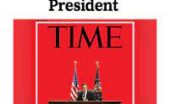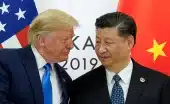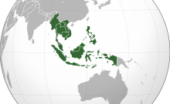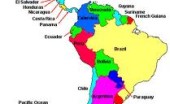Johannah Bernstein post: "eternally proud of my father’s extraordinary aeronautical engineering. legacy. here is a photo of the Canadair Water…
Mortality and politics
Written by Diana Thebaud Nicholson // December 19, 2011 // Government & Governance // Comments Off on Mortality and politics
Background: Thailand’s succession
As father fades, his children fight
Behind the present unrest in Thailand lie far deeper fears about the royal succession. And those may not be spoken publicly
Venezuela
Chávez’s health raises power vacuum fears
(FT) Venezuelans are beginning to ask how the Opec country’s highly personalised government will operate in the interim while its president receives treatment in Cuba
++++++++++++++++++
North Korea is chastised by UN as Kim’s successor is named
Two days after the death of North Korean dictator Kim Jong Il, the UN General Assembly voted overwhelmingly to pass a nonbinding resolution calling upon the country to end to the “systematic, widespread and grave violations of human rights” that “have led to severe malnutrition, widespread health problems and other hardship for the population,” especially women, children and the elderly. Countries have been holding urgent talks on the implications of Kim’s death, with the U.S. asking the country to pursue a “path of peace.” The Washington Post/The Associated Press (12/19), BBC (12/20), Los Angeles Times (12/19)
Kim Jong-il’s successor to rule North Korea is publicly endorsed by China
Beijing calls on North Koreans to unify under ‘comrade Kim Jong-un’ in move to bolster Pyongyang and avoid regional crisis
(The Guardian) China is crucial to the survival of Pyongyang in the face of international isolation. It has provided economic assistance to North Korea since 2006, when US and South Korean aid dried up after Pyongyang carried out the first of two nuclear tests. In the past 18 months Kim Jong-il travelled four times to China. He also visited Russia, North Korea’s other key partner. Beijing is anxious to avoid any collapse of its often troublesome neighbour, reasoning that this would lead to a flood of refugees and economic migrants across its border. Unlike the US, which wants North Korea to scrap its nuclear capabilities, China’s chief strategic concern is to maintain regional stability.
Kim Jong-il’s death: an uneasy legacy
Whether Kim Jong-il’s death really is ‘turning point’ for North Korea depends on his son, and the country’s greatest ally, China
World watches Pyongyang after Kim Jong Il passes
World leaders and diplomats are keeping a wary eye on Pyongyang in the wake of news that North Korea’s longtime dictator Kim Jong Il died Saturday. South Korea put its military on alert, and United Nations Secretary-General Ban Ki-moon was monitoring the situation for signs of crisis. The New York Times (tiered subscription model) (12/19), Los Angeles Times (12/19)
20 October
Gaddafi killed in hometown, Libya eyes future
(Reuters) – NATO is to formally decide on Wednesday whether to end its mission over Libya now that Muammar Gaddafi is dead and buried and the country’s new leaders have declared the nation “liberated”.
4 July
Hugo Chavez returns to Venezuela after surgery in Cuba
(BBC) Venezuelan President Hugo Chavez has arrived back in his country after receiving medical treatment in Cuba.
3 July
Thailand opposition wins key election
The party allied to ousted and exiled ex-leader Thaksin Shinawatra has won a major victory in Thailand’s general election, provisional results show. With most votes counted, outgoing Prime Minister Abhisit Vejjajiva has conceded victory to his rival, opposition leader Yingluck Shinawatra. With 92% of votes counted, Ms Yingluck’s Pheu Thai party had won 260 seats, giving it a majority in the 500-seat parliament.
1 July
Thailand’s Military Is Wild Card in National Elections
(WSJ) Victory in this Sunday’s national election may be only the first step to power in Thailand, as the leading candidate for prime minister, Yingluck Shinawatra, is likely to discover if her party wins.
With Ms. Yingluck leading opinion polls, analysts said the key question is whether Thailand’s conservative armed forces will accept an outcome that places the youngest sister of exiled populist billionaire Thaksin Shinawatra—a former prime minister whom the army ousted in a coup five years ago—in Thailand’s top job.
Many residents and political analysts said they believe Ms. Yingluck will have a hard time assuming or holding on to power even if her opposition Puea Thai, or For Thais, Party wins the vote as expected, with the military and its allies in parliament jockeying to block her ascent, contest the results or otherwise work to remove her. They note that the military has a history of past interventions, including numerous coups over the years.
Venezuela ponders Chavez’s medical absence
(BBC) After weeks of speculation about the health of President Hugo Chavez, Venezuelans are now adjusting to the reality that their head of state has been treated for cancer in Cuba and may not return to the country for some time, says the BBC’s Sarah Grainger in Caracas.
President Chavez appeared frail during a recorded message to the nation broadcast on state television on Thursday evening.
Whiff of mortality chastens fire ‘n brimstone Chavez
(Reuters) – For years, Venezuela’s irrepressible President Hugo Chavez has taunted frustrated opponents with the prospect he will rule into the third decade of this century.
But the aura of self-assured invincibility that is one of his most potent political weapons appeared dented on Thursday when the 56-year-old leader told his people and the world from Cuba about the removal of a cancerous tumor.
30 June
GWYNNE DYER On mortality and politics — Civil wars on horizon if leaders die
(Arab News) The graveyards are full of indispensable men,” growled Charles de Gaulle, but French history would have been very different if he had died in 1940 (no Free French government, probably a Communist take-over attempt when France was liberated in 1944) or even in 1960 (no quick exit from Algeria, no Fifth Republic).
There are a few people whose absence would really make a difference.
Two such people seem to be hovering on the brink of death at the moment, though we have no trustworthy medical information about either one. In each case, their death could open the way to civil war. One is Thailand’s King Bhumibol; the other is Venezuela’s President Hugo Chavez.
Bhumibol, now 83 years old, has been the king of Thailand since he was 21, and although he is a constitutional monarch his influence is all-pervasive. It has, on the whole, been exercised in ways that promoted Thai independence, calmed domestic political quarrels, and supported the emergence of democracy. He has been the still center at the heart of the storm for many decades, and he is revered by most Thais.
King Bhumibol has spent most of the past two years in hospital, and few Thais expect him to live much longer (although this is never discussed in public). When he goes, the crown will probably pass to somebody who takes sides in the ongoing battle between “red-shirts” and “yellow-shirts” that has divided Thailand, and has already caused many deaths, over the past few years.
There is an election due in Thailand on July 3. Opinion polls suggest that, as before, a majority of Thais will vote for the party of former Prime Minister Thaksin Shinawatra, who was ousted by a military coup in 2006. Some ninety red-shirts, the mostly poor and rural supporters of Thaksin, were massacred by the army in a confrontation in central Bangkok last year, and the army may try yet again to reject a pro-Thaksin election outcome.
Crown Prince Maha Vajiralongkorn was once close to Thaksin and probably still secretly supports him, but he is a playboy who is neither loved nor respected by the public. His mother, Queen Sikirit, sympathizes with the yellow-shirts, and is rumored to be angling for the army’s support to make her regent when her (estranged) husband Bhumibol dies, rather than letting the crown prince have the throne.
If the two royals were to align themselves publicly with the opposing sides in a struggle for the throne after Bhumibol dies, they would substantially raise the probability that Thailand could stumble into a full-scale civil war.
Whereas if Bhumibol can hang on for another year the dispute may be settled at the ballot boxes, with the army grudgingly accepting a restoration of the normal democratic order. He may not be utterly indispensable, but he is pretty important for Thailand right now.
And then there is Hugo Chavez. He is not exactly the “dictator” of Venezuela, as US propaganda often calls him (he has been elected a number of times in free elections), but certainly he is a “strongman” in the classic Latin American style. He comes from the army, he once led an attempted coup, and he is a full-time demagogue. The only difference is that he is a strongman of the left. And he may be dying.
The official story is that Chavez was in Cuba on June 9, in a private meeting with Fidel Castro, when he suddenly fell ill. Cuban doctors were called in, and immediately operated on him for a “pelvic abcess.” But he is still in hospital in Havana two weeks later, virtually incommunicado.
Chavez is an inveterate user of Twitter, but he has only tweeted once in all that time, to announce that his mother, his favorite daughter and his ex-wife had flown to Cuba to see him. He also reportedly telephoned a meeting of his ruling party’s senior leaders on Monday, but that may not be true. Venezuelans are speculating that his illness may be fatal, and the people close to Chavez are struggling to reassure his supporters.
If Chavez does recover, he might lose the 2012 presidential election anyway. He will have been in power for fourteen years by then, and the mere passage of time has seriously eroded his power base. He has improved the lives of the poor, but a government with an oil income of bazillions of dollars that cannot even produce enough electricity to keep the lights on is bound to lose popularity.
Should Chavez die now, however, there might not even be a 2012 election. His elder brother Adán, the governor of the state of Barinas, reminded everybody that although the socialist government won power through the ballot box, “we cannot forget, as authentic revolutionaries, other methods of fighting.” And the army, whose senior ranks have been stuffed with Chavez loyalists, might well back a “revolutionary” seizure of power.
On the whole, then, it would be better if Chavez survived and came back to Venezuela, only to lose the election honestly next year. Like King Bhumibol, he is the indispensable man for the next little while. After that, if all goes well, he can die whenever he wants.
29 June
Red Shirts and Rowdy Royals
BY ANDREW MACGREGOR MARSHALL
(Foreign Policy) The secret WikiLeaks cables that explain how Thailand went from paradise to political mayhem.
A decade ago, Thailand was a beacon of democracy and progress in a neighbourhood mired in archaic autocracy. Three of its neighbours — Burma, Laos, and Cambodia — are trapped in the past and very far from being free. The fourth, Malaysia, is an apartheid state in which access to education and jobs depends on race. Thailand was regarded as the natural leader of the ASEAN bloc and an example for other democratizing nations to follow. Tragically, all that has changed.
On the surface, the election is a straight fight between the incumbent Democrat Party of Prime Minister Abhisit Vejjajiva and the Pheu Thai party formally led by Yingluck Shinawatra, the younger sister of exiled telecommunications billionaire Thaksin Shinawatra — who remains a central figure in Thailand’s crisis. At stake is far more than which party will form the core of Thailand’s next government. The election is the latest skirmish in a long struggle over the balance of power between elected politicians, the military, and the monarchy. At this stage, Thaksin’s proxy party looks set to win power — and generals allied with the 78-year-old Queen Sirikit, the estranged wife of the widely beloved King Bhumibol, are likely to do all they can to sabotage that.
23 June
US ‘worried over Thai succession’
(BBC) American diplomats have expressed concern over Thailand’s royal succession, according to leaked cables.
The documents suggest Crown Prince Vajiralongkorn, who is next in line to the throne, is suffering from health problems. US officials are also worried about how the Thai public regards him.
22 June
Monarchy in spotlight: tensions that threaten new turmoil in Thailand
A controversial report based on leaked documents suggests members of the royal family are vying for power before election
(The Independent) The ailing 83-year-old King Bhumibol Adulyadej, who has long been the focus of speculation about his health, has lost much influence to Queen Sirikit, deemed to have been distant from him for many years and who has indicated support for the opponents of the former prime minister Thaksin Shinawatra. Within the palace walls and beyond, there is deep anxiety over the issue of succession and whether the King’s unpopular son, the Crown Prince, or his more popular daughter, will assume the throne when he dies.



